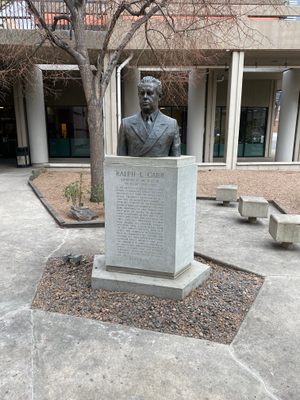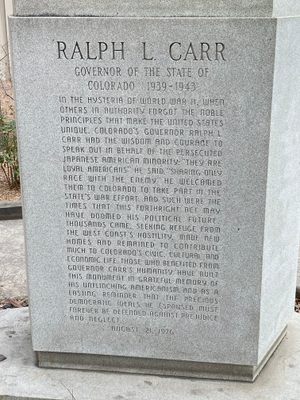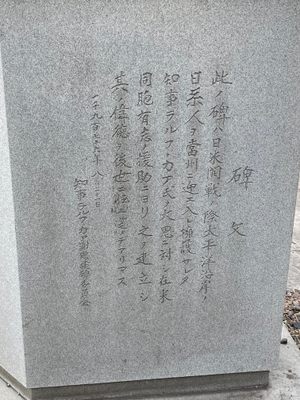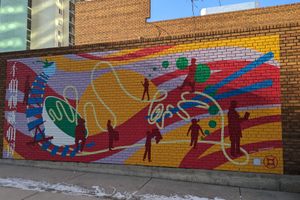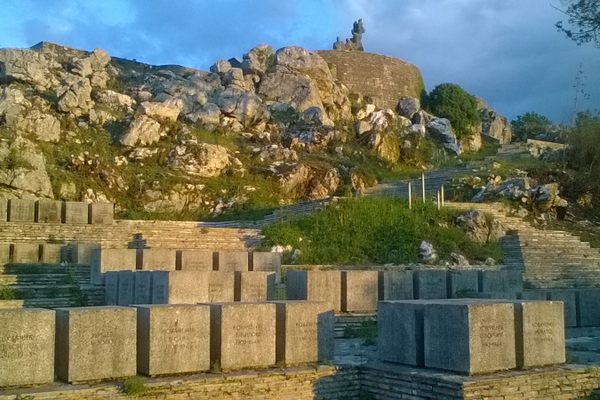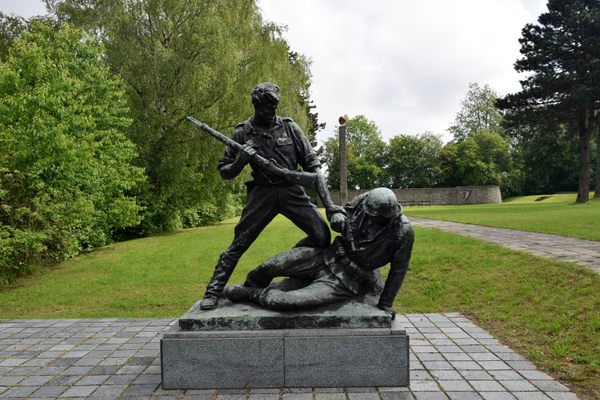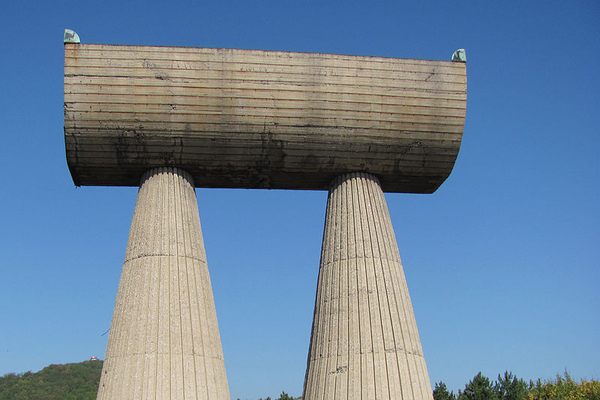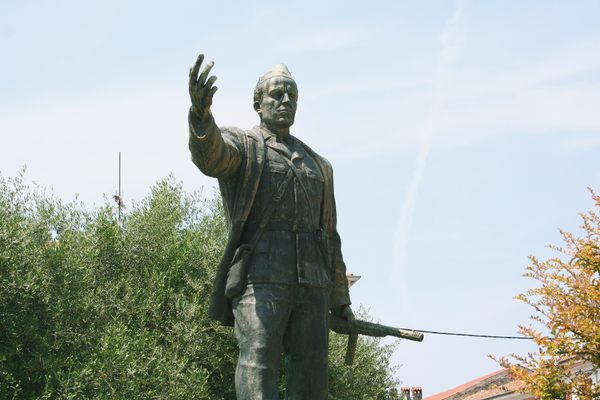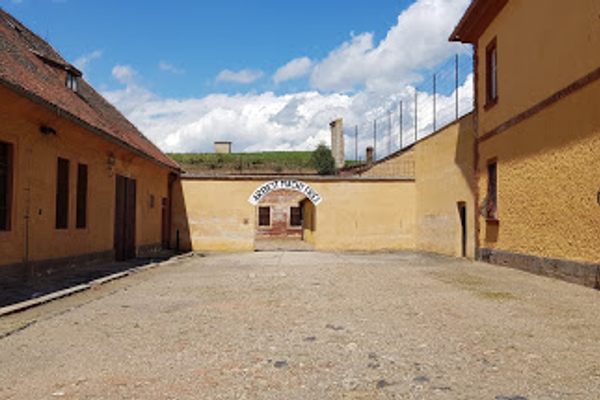About
On February 19, 1942, Franklin Roosevelt issued Executive Order 9066 that ultimately resulted in the imprisonment in concentration camps of people of Japanese ancestry. Most governors of the western United States embraced the relocation and assisted with the removal of Japanese Americans, though many objected to having the camps placed in their states.
The sole objection to the program as a whole came from Governor Ralph L. Carr of Colorado. He objected to denying the rights of American citizens based only on ancestry, but unlike other governors, he accepted the establishment of a concentration camp in Colorado (Granada Relocation Center) to assure that they would be treated with respect. He said:
“They are as loyal to American institutions as you and I. Many of them have been born here–are American citizens, with no connection or feeling of loyalty toward the customs and philosophies of Italy, Germany and Japan. ... I am not talking on behalf of Japanese, of Italians, or of Germans as such when I say this. I am talking to ... all American people whether their status be white, brown or black and regardless of the birthplaces of their grandfathers when I say that if a majority may deprive a minority of its freedom, contrary to the terms of the Constitution today, then you as a minority may be subjected to the same ill-will of the majority tomorrow.”
His principled stance cost him his career in government. In 1942, he lost his seat to Edwin Johnson, who advocated using the Colorado Nation Guard to prevent detainees from entering Colorado. He claimed that Carr was more interested in exploiting the labor of the detainees than in protecting their rights. Carr died in 1950.
In 1976, a statue was dedicated to him in Sakura Square. Part of the inscription reads, “Those who benefited from Governor Carr's humanity have built this monument in grateful memory of his unflinching Americanism, and as a lasting reminder that the precious democratic ideals he espoused must forever be defended against prejudice and neglect.” His name graces a street that runs through the Denver suburbs. A section of U.S. Highway 285 between C470 and Kenosha Pass was named the Ralph Carr Highway. Another monument to him was erected on the top of Kenosha Pass. In 2008, a new Colorado judicial complex at Broadway and 14th Street was named in his honor as well.
The Denver Post named him its “Person of the Century” in 1999.
Sakura Square, a small plaza in downtown Denver also contains memorials to prominent Japanese Americans, as well as a small Japanese garden.
Related Tags
Know Before You Go
The memorial is easy to find, on the corner of 19th Street and Larimer.
Community Contributors
Added By
Published
July 21, 2020
